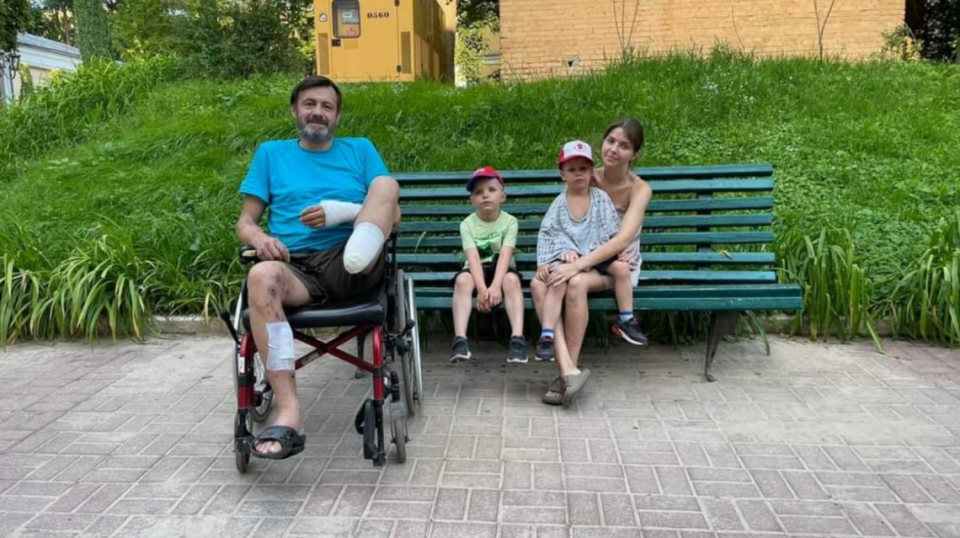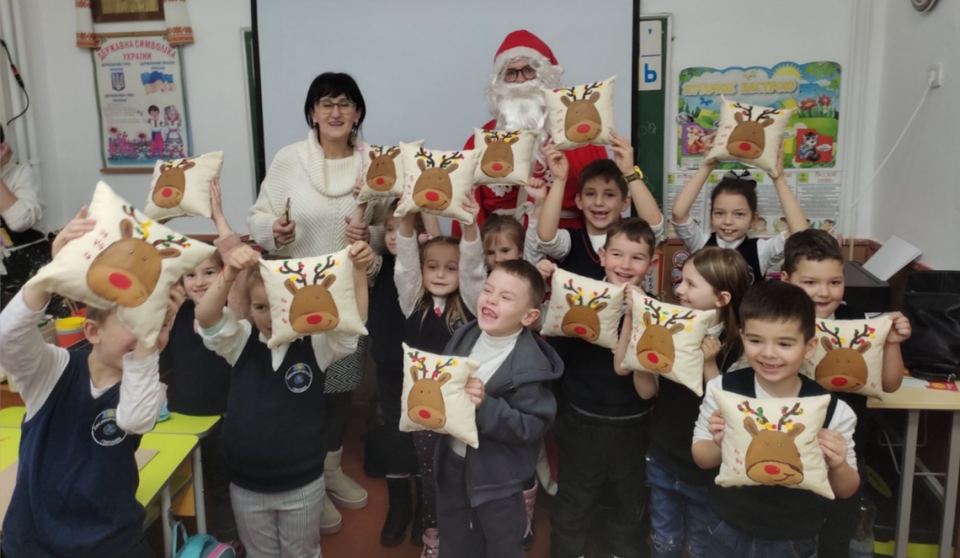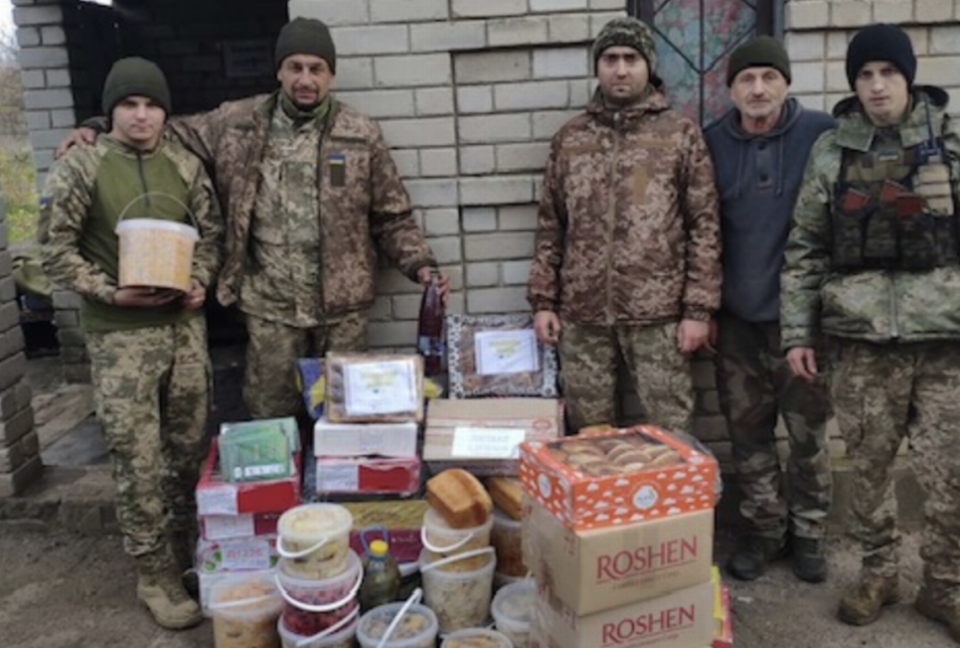Modesto residents have impacted the lives of Ukrainians during the war. Here’s how | Opinion
As someone who was born and raised in Khmelnytskyi — one of Modesto’s seven sister cities throughout the world — I would like to express my sincere and heartfelt gratitude on behalf of all Ukrainians. Last year, our sister city of Modesto raised $70,0000 for Khmelnitsky. That money went to purchase generators for the Children’s Hospital, allowing them to keep the hospital running and patients warm when Russia’s genocidal forces attacked and destroyed 50% of Ukraine’s power grid.
Donations from many Modestans also helped buy skylights to protect the city from Russian drone attacks at night, food delivered to the front of the war effort prepared by local volunteers as well as tourniquets and other life-saving necessities.

The sister city agreement of cooperation and friendship was signed in 1987, four years before Ukraine gained its independence from the Soviet Union. All my relatives, friends, former colleagues and numerous acquaintances thank you for your unwavering support since Russia’s full-scale and aggressive invasion of Ukraine, which began on February 24, 2022.
Opinion
After almost two full years of this devastating war, Ukrainian children have been hit especially hard. According to the United Nations, nearly two-thirds of Ukrainian youth have been forced to leave their home. Forced to leave their homes and relocate within the country or go abroad, this war has separated children from their parents who either wanted to stay and defend Ukraine or could not seek shelter with their children abroad.
Those inside the country are in constant danger due to massive Russian attacks which have damaged energy systems, ruined water supply, caused a loss of heating, destroyed schools and hospitals and riddled cities with explosive devices.
An estimated 5 million Ukrainian children have been dislocated from their homes since the war began. Due to Russian artillery and air attacks, approximately 575 children have died and at least 1,148 children total have been injured in the war. The number of total Ukrainian civilians killed has now reached more than 10,200.
Stolen children
On the Russian occupied territories of Ukraine, thousands of Ukrainian children have been kidnapped by Russian forces — forcefully stolen and carried off to all parts of Russia.
“Hundreds have been returned, hundreds are in Russian foster care, but many more are still missing,” the Guardian reported last October.
Last March, following an investigation of war crimes, crimes against humanity and genocide, the International Criminal Court issued arrest warrants for Russian President Vladimir Putin and the Russian Commissioner for Children’s Rights for the alleged war crime of “unlawful deportation of children” and the “unlawful transfer of children from occupied areas of Ukraine to the Russian Federation.” Just three months later, in June, the Secretary General of the United Nations added Russia’s armed forces to a list of parties that have committed “‘grave violations affecting children in situations of armed conflict’ for reportedly killing and maiming hundreds of Ukraine’s children, using them as human shields and attacking schools and hospitals,” according to the U.S. Department of State.
Putin, who has been nicknamed “Put-ler” in Ukraine because of his treacherous crimes, has since limited his rare visits abroad. Could this be because he fears being arrested?
The fiendish purpose of abducting children? To brainwash them and turn them against Ukraine so that Russia effectively erases their Ukrainian identity, culture and family. The majority of Russian camps that house stolen Ukrainian children engage in “pro-Russia re-education efforts,” according to the U.S. State Department.
Ukraine’s students
Meanwhile, in Western Ukraine, my cousin Oksana’s first grade class was meeting in the basement of their school which had been turned into a bomb shelter. It was bitterly cold in the bomb shelter — not to mention very dark and dreary. A local priest saw photos of the young children studying in heavy coats and mittens and volunteered his church’s 19th Century seminary which has walls that are 5-feet thick. The class was subsequently moved from the dark, freezing bomb shelter and allowed to meet above ground.
This last December 6, the children got a visit from St. Nicholas. The class made reindeer pillows for Ukrainian soldiers at the front of the war effort. However, in a diabolical move, Russian forces sent drones and missiles to disrupt their joyful celebration, forcing the children to don their coats and go back down into the bomb shelters.

Of course, it was not by accident that the celebration was disrupted. The Russians have a plan to not only disrupt St. Nicholas celebrations, but to prevent all education from happening in Ukraine. According to the United Nations Office for the Coordination of Humanitarian Affairs, more than 3,000 education institutions have been damaged or destroyed.
Ukrainian schools that do not have equipped bomb shelters or basements work online. In wartime, Ukraine’s children are maturing very fast. Even the small ones understand what is happening around them. My grand-nephews and grand-nieces spend many hours — both during the day and at night — in bathrooms without windows to avoid injuries from shattered glass.
The other day, I asked 8-year-old Artem what he did on the night of December 13 when Russian forces attacked Kyiv with 10 Shahed drones and 10 ballistic missiles.
“I finished reading (a) book in the bathroom,” he said. “I had three hours.”
Artem started stuttering 15 months ago and is undergoing psychological treatment now.
Patriotic civility
One of Russia’s favorite times to sadistically send drones is when school children are having their daily nap time. While lying on their rugs, small children must listen to bombs exploding all around them. Despite this, Ukraine’s education efforts have not stopped.

My cousin, Oksana, told me that one of her six-year-old students has a father missing in action. He was wounded in the war effort, and his family hasn’t been able to locate his body. The student, Ostap, and his 4-year-old sister live with only their mother as their sole caretaker. I wanted to send the family money, so I wired it to my cousin. She gave Ostap the money, telling him he and his family could use it anyway they wanted to. Two days later, my cousin called to tell me what the boy had decided: He had Oksana take him to the local military post where he distributed money to the soldiers for food and supplies.
My cousin was surprised. She thought he would get something for himself. But the boy told her that the soldiers needed the money to find his father and defend his country. What a lesson for us all in patriotic civility.
Dr. Serhiy Samborskyi is a lecturer at California State University Stanislaus. He was born, raised and educated in Khmelnytskyi and Kyiv, Ukraine. He can be reached at serhiys@me.com

